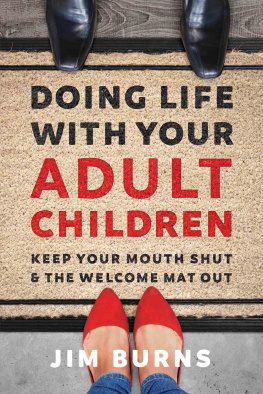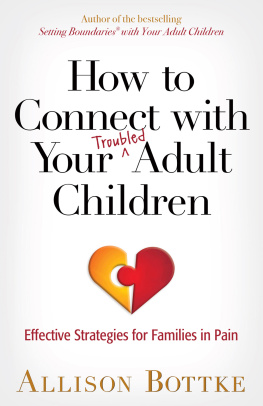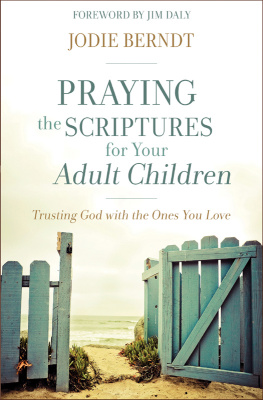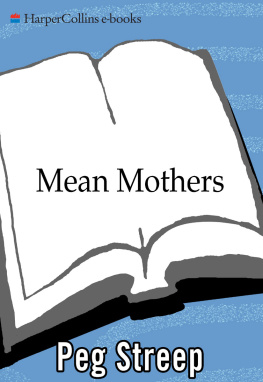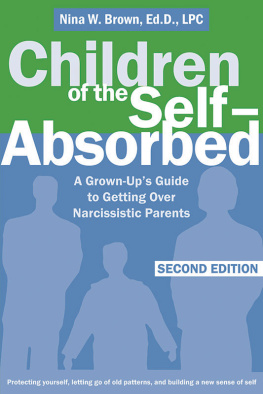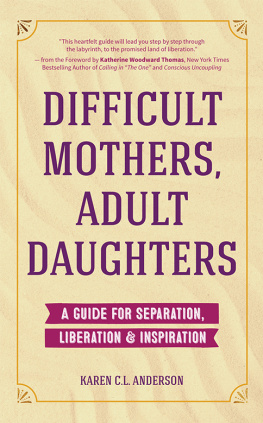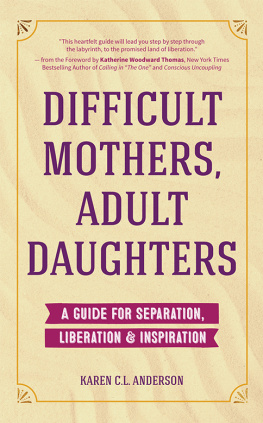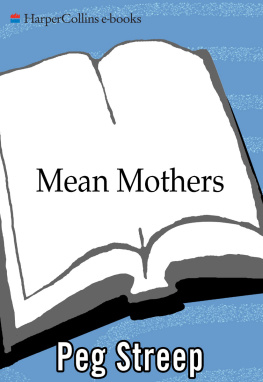Judith R. Smith, PhD, LCSW, is a leader in gerontological research focusing on womens experiences as they age. She is a senior clinical social worker, psychotherapist, professor, and researcher. She has used her mental health and child development knowledge in the production of educational films, academic publications, and now this book.
Dr. Smith coined the phrase difficult adult children to describe the dilemmas older mothers experience as they cope with the needs of their adult children who have problems related to mental health issues, substance misuse disorder, or chronic unemployment. These mothers, although conflicted, attempt to provide financial, emotional, and/or housing support. Dr. Smith hopes that by giving a name to a growing national and international problem, the needs of older mothers who are now the default caregivers for their vulnerable adult children will be included in policy discussions about family caregiving, mental health, and substance use policies. She hopes to help create a network of mothers of difficult adult children to share resources, find social support, influence policy, and lessen the stigma that many carry of being a bad mother.
Dr. Smith is an associate professor at the Graduate School of Social Services at Fordham University. She lives in New York City with her husband. She welcomes feedback, questions, and conversation with parents. Contact her on her website http://motheringinlaterlife.com, on her Facebook page Difficult: Mothering Adult Children through Conflict and Change, and on her Twitter handle @JudithRSmithPhd.
I am forever indebted to the many mothers who shared their life stories with me. Their dignity, wisdom, and life lessons are the heart of this book.
I benefited from the support I have received over the years from my closest friends who helped me to believe in the value of documenting and sharing the strains of mothering challenging adult children. Jessica Lipnack, Barbara Glickstein, and Ellen Wachtel deserve special thanks. Pat Brownell from Fordham University has been an invaluable advocate of my academic interest in studying elder abuse through the eyes of mothers.
I owe tremendous gratitude to Brenda Copeland for her steady presence and concrete advice as I developed my ideas into this book. Many thanks to Ethan Ellenberg, my agent, who recognized the value of this project from the beginning and helped me to connect with my editor, Suzanne Staszak-Silva.
The project could not have happened without the many social service agencies that helped me during the recruitment stage of the research. These include Central Harlem Senior Citizens Centers, Eileen Dugan Center, Goddard-Riverside Senior Center, JASA/LEAP, National Adult Protective Services Association, NYC Elder Abuse Center at Weill Cornell Medicine, Weinberg Center for Elder Justice, and 1199 SEIU United Health Care Workers.
The section on getting help is informed by the experience of leaders in the fields of aging, mental health, social work, and elder abuse, including Risa Breckman, NYC Elder Abuse Center at Weill Cornell Medicine; Teri Brister, National Alliance of Mental Illness; Paul Caccamise, Lifespan of Rochester; Patricia Deegan, CommonGround; Lisa Dixon, New York State Psychiatric Institute; Lisa Furst, Vibrant NY; Miriam Goldberg and Takai Forde, JASA/LEAP; David Levy, Esq. Kings County District Attorney; Nancy Needell, Mt. Sinai Hospital; National Center on Elder Abuse; Joanne Sirey and Jean Wynne, Weill Cornell Hospital; Helle Thorning, New York State Psychiatric Institute; and Richard Velleman, Addictions Research Group.
GETTING HELP FOR YOURSELF AND YOUR ADULT CHILD
General Resources
A good starting point if you are looking for services for yourself or another older adult in your state is your local state office on aging. They are federally funded and provide grants and funding to Area Agencies on Aging (AAA) that will be local to you, and thus can provide you guidance for who to contact in your area.
To locate your nearest AAA, you can go to https://eldercare.acl.gov/Public/Index.aspx.
Hotlines and Helplines
If you or someone you know is struggling with suicidal thoughts, emotional distress, or mental health issues, the National Suicide Prevention Lifeline can help. This is a nationwide helpline that can connect you with a trained counselor. In turn, they can provide you with emotional support as well as connect you to services in your area for yourself and your adult child. To contact them, you can call 1-800-273-8255 or visit https://suicidepreventionlifeline.org.
SAMHSAs National Helpline1-800-662-HELP (4357)is a free, confidential, twenty-four/seven, 365-day-a-year treatment referral and information service (in English and Spanish) for individuals and families facing mental and/or substance use disorders. Visit online at https://www.samhsa.gov/find-help/national-helpline.
FindHelp (formerly known as Aunt Bertha) has a nationwide search tool that enables you to find resources in your area such as employment assistance, food assistance, education assistance, etc. Visit online at https://www.findhelp.org/.
Mental Health Services
This step-by-step guide created by the National Alliance on Mental Illness gives an excellent overview of how to find a mental health professional: https://www.nami.org/Your-Journey/Individuals-with-Mental-Illness/Finding-a-Mental-Health-Professional.
Community mental health clinics: Resources will vary depending on where you live. Many cities and large towns have community mental health clinics that focus on serving their local population. If you are unsure of how to find one nearby, community centers or local organizations like the YMCA are often able to connect you with whats available near you.
Here are two directories for clinics in the United States:
https://findtreatment.samhsa.gov/
https://www.nafcclinics.org/clinics/search
Psychotherapy: Here is a helpful guide on how to find a therapist: https://www.nytimes.com/2017/07/17/smarter-living/how-to-find-the-right-therapist.html.
A directory that is useful for finding therapists near you: https://www.psychologytoday.com/us/therapists.
Many therapists take insurance, but not all do. Cost can vary widely, but a therapist may charge on a sliding scale if there is financial need. You should always discuss the cost with the therapist before your first session takes place.
Online therapy: There are now many counselors that offer online-only therapy, which can sometimes be more affordable as well as easier to fit into your lifestyle. This article is a good primer on services that offer online therapy right now: https://www.nytimes.com/wirecutter/reviews/online-therapy-services/. Post-COVID 2020, many more online therapy services were created and are not reviewed in this article.
Most therapists in private practice also may offer online therapy and you can locate professionals in your area through the Psychology Today directory. You can also check with your insurance company for any partnerships they might have with online mental health providers, as many insurance companies have established relationships with specific telehealth and mental health providers.
SERVICES FOR PARENTS
Self-Help and Support Groups
Self-help and support groups are not psychotherapy, per se, unless they are run by a therapist in a formal group therapy structure. But they can have therapeutic qualities and help you to process your experiences while receiving mutual support.
You can do a general search for support groups in your area through Psychology Today: https://www.psychologytoday.com/us/groups.


